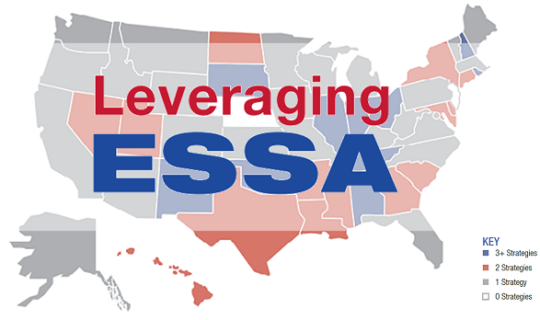Resource: Louisiana School Report Card Case Study
School and district report cards can be one of the most powerful tools in a state agency’s toolbox for empowering decisions about the direction of the education system. They can facilitate families’ decisions about where to send their child. They can help establish a common understanding of performance among educators, policymakers, business leaders, and the general public. And they can provide a transparent platform for building trust in the state’s education system and efforts to improve. Yet, far too often they under deliver on their promise. In A School Finder to Empower: Case Study of Louisiana’s New School Report Card, prepared on behalf of the Council of Chief State School Officers, we detail the process Louisiana used to deliver a tool that empowers multiple stakeholders.
The Every Student Succeeds Act requires states to publish “easily accessible and user-friendly” annual school report cards that describe the state’s accountability system, define its indicators, display school ratings, and present disaggregated student performance data. While most states previously produced school report cards, the Data Quality Campaign found that they were often challenging to locate and did not always present information in easy-to-understand ways or at the right level of depth for the diversity of stakeholders.
Louisiana set out to address these challenges by creating two different tools. The first, known within the state as the “School Finder,” represents Louisiana’s federally-required school report card and allows parents to compare schools and early childhood centers from across the state based on location, performance, and academic and extracurricular offerings. The second, the “Louisiana Principal and Superintendent Secure Reporting Portal,” enables users to recreate their accountability score based on individual student data, answer core questions about comparative performance and trends, receive “insight” statements based on the data. This was created because the state recognized that its public report cards would never be detailed enough to satisfy educators, and previous attempts to do so left families bogged down in data and confused.
The case study digs into Louisiana’s approach to producing a new school and district report card and secure data portal, focusing on the state’s efforts in the following areas:
- Stakeholder engagement to identify appropriate set of metrics for formal accountability ratings and public reporting;
- Creating a compelling design that met multiple users’ needs; and,
- Broadly preparing for and executing a communications strategy for release.
As other states work to develop their new data reporting tools, including school and district report cards, Louisiana’s experience can be a guide. The case study concludes with a reflection on critical lessons learned from the development and release process, including:
- Put Policy Before Presentation
- Be Clear About the Audience
- Partner to Engage Stakeholders Early and Often
- Connect the Report Card to Action
- Focus on Facilitating Critical Conversations
Creating a coherent system is the first step in a long line of connected actions to support and inspire performance. It will take much more than the state agency creating a powerful tool to communicate performance. The state will need to get this information into the hands of those closest to students. Ultimately, it will be up to actors beyond the state education agency to make the most critical decisions about a child’s journey from early childhood to K-12 to postsecondary education, training and beyond.






